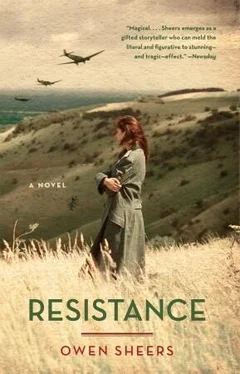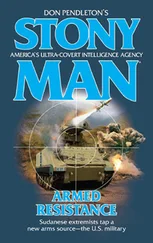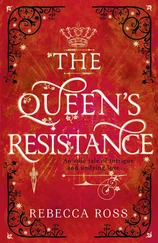She was almost at the bottom of the track when she turned round and walked back up to the house. Going around into the larder she unhooked two sides of bacon from the ceiling, then took them into the shed in the yard. Coming back out she placed a piece of bacon in front of each dog. “Good girls,” she said as they sniffed at the meat and began to eat, pinning the slices to the ground with their paws.
As Sarah crossed the valley she saw the windows of The Court were lit, as were several of the windows at Mary’s. The birds had stopped singing and the valley was silent. The sun had gone down, but the sky was not yet dark and threads of light, deep mauves and indigos, still streaked across the deepening grey. The curves of the lane were traced out before her by banks of cowslip on either side, thick in the hedgerows and glowing dimly white in the gathering dark.
The full moon of the previous night was partly obscured by cloud so Sarah found it hard work climbing the slope on the other side of the valley without a torch or a lantern to guide her. The bracken was thick and every time she lost the path her legs got caught up in the tangle of its stems. Eventually she rose high enough above Maggie’s farm to begin walking along the western wall towards the valley’s mouth. As she passed above The Court, she paused and looked down at the thin rectangles of light cast from its windows across the orchard and vegetable garden. She could just make out some voices from inside, but nothing else. Then she saw Alex, standing at the front of the house, looking up towards the valley’s head, motionless in the faint moonlight as if it had cast him into stone.
It took Sarah another half hour of scrambling over the scree to reach the cleft in the Red Darren. Even in the deepening night she could make it out as she approached; a dark slit tapering up the face of the cliff looming silver grey above her. She paused at the entrance to catch her breath and take off her coat. She was sweating from the climb, strands of loose hair sticking to her forehead and cheeks. Reaching behind the boulder she found Albrecht’s torch then walked into the shadow of the crevice. Once she was deep enough inside, she turned the torch on. As before it looked as if the split in the rock ended before her in a sheer wall of moss-streaked stone but on reaching this stone she saw again the wooden struts and brattice leading deeper into the man-made cavity scooped from the soft sandstone of the hill. Edging herself through the narrow gap, she came out into the hollow, the torch beam lighting up the jagged damp walls before landing upon the smoother folds and pleats of the sacking cloth and tarpaulin.
Putting the canvas bag down at her feet, Sarah pulled the cloths from off the packing crate to reveal the map within its frame inside. She didn’t want to risk damaging the torch so she kicked at the earth at her feet until she dislodged some fragments of rock. Bending down, she picked one up and felt its weight in her palm, turning it in her hand until its sharpest edge protruded from the bottom of her fist. Holding the torch in one hand and the stone in the other, she stood and stepped up to the map. Standing so close to it again she couldn’t help casting her eye over its details once more, passing her own reflection over its strange creatures and towered cities. Whichever part of its half-imagined world she looked at she misted with her own breath, obscuring the cartographer’s ink, the gold leaf, under brief patches of clouded glass. She didn’t look too long, however, worried that, as with the rooms of Upper Blaen, she might be weakened by memories no longer of any use to her in her altered world. Lifting the stone to the top right-hand corner of the case, she brought it down with all her strength against the glass.
The first time she hit the glass the stone left no more than a granular smudge and a long fracture, running southwest across the map as far as the Red Sea. The second time, however, the glass splintered, tiny shards showering down between the map and its frame. The third time it shattered completely, with more shards falling at her feet and then larger pieces peeling away like the slabs of ice she’d pulled from the frozen troughs over the winter.
Sarah stood back from the crate. The map was entirely exposed, and for the first time she could shine the torch over its surface without the reflected light obscuring her vision. It was beautiful, the most beautiful thing she had ever seen. Kneeling to her bag she took out the box of matches.
The first match she struck guttered and extinguished in the breeze that came channelling through the narrow rift in the rock behind her. She moved closer to the parchment, so close she could smell its scent of musty hay and the tang of ammonia used to preserve what colours it still held. She lit a second match, this time cupping the flame in her palm as she lifted it carefully to the bottom right-hand corner of the map.
The centuries-old parchment took with the sound of autumn leaves burning on a bonfire. It curled and blackened before the flames, the faint blue dye of the rivers bleeding from their imagined banks before disappearing completely. As the fire reached the brown seas its flames flickered green, as if the heat had released the spirit of their original colour. The gold leaf of the compass points burnt brightest, cracking and peeling away like shavings of pure light.
The heat was sudden and strong and Sarah had to shift herself quickly backwards, the constellations of broken glass crunching under her boots as the flames tore up the rest of the map, washing over the score-marked Paris, the cog of Jerusalem, and on up towards the circle of paradise at its eastern head. By now the cavity was filling with billows of thick grey smoke and Sarah was worried the light of the flames might somehow be seen in the valley below. Picking up her bag, she made her way out of the man-made hollow and on through the natural split in the rock, the sound of the world burning and splitting behind her.
As she came out into the cool night air, Sarah saw the headlights of two cars and a truck tracing the ribbon of the lane up towards the mouth of the valley. She watched them shudder over the rougher parts of the track then slow and swing around the tight corners, sweeping their beams through the hedges and over the fields. As the truck ground its gears up an incline its headlights shone into the sky; two soft pillars of light briefly rising and falling in the otherwise motionless night.
Sarah didn’t want to see them drive any further, so shouldering her bag she turned her back on the valley and began climbing up towards the ink black horizon of the Hatterall ridge. The slope on this side of the Red Darren was steep and covered with shale and scree that gave under her feet. Each step she took sent a running sigh of stones down into the valley below. As she rose higher the fragments became larger, unsteady stepping-stones, tipping and swaying under her weight. She stopped and looked back just once to see the three sets of headlights part as the truck and one of the cars took the lower lane towards The Court and the other drove higher towards The Firs and Mary’s farm. She turned back to the hillside and carried on climbing, using her hands as well now, grasping at fistfuls of rock, her face so close to the slope she could smell the rivulets of water trickling beneath her and the young ferns and mosses fed by their flow.
As she rose higher towards the horizon of the ridge Sarah saw a sudden point of light up the valley. It was, she realised, one of The Gaer’s windows shining out onto the blackness of the upland slopes. She climbed on, her own breath hard and fast in her ear. As she climbed she thought of Edith, barefoot on the mountaintop looking for her son; her startled face above that board and upturned glass. She paused, her chest heaving, then bent to the slope once again, thinking now of the ponies she and Maggie had found frozen together on the plateau, and then, as she finally crested the ridge and the night wind came at her, throwing her hair around her face, about another of the poet’s stories. It was one of the earliest ones he’d told her, about the Iron Age people who’d first lived in these hills; how they’d built their forts on these promontories and how they’d only ever walked between them along the ridges and high places. Where they could see clearly, where they knew they were safe.
Читать дальше












